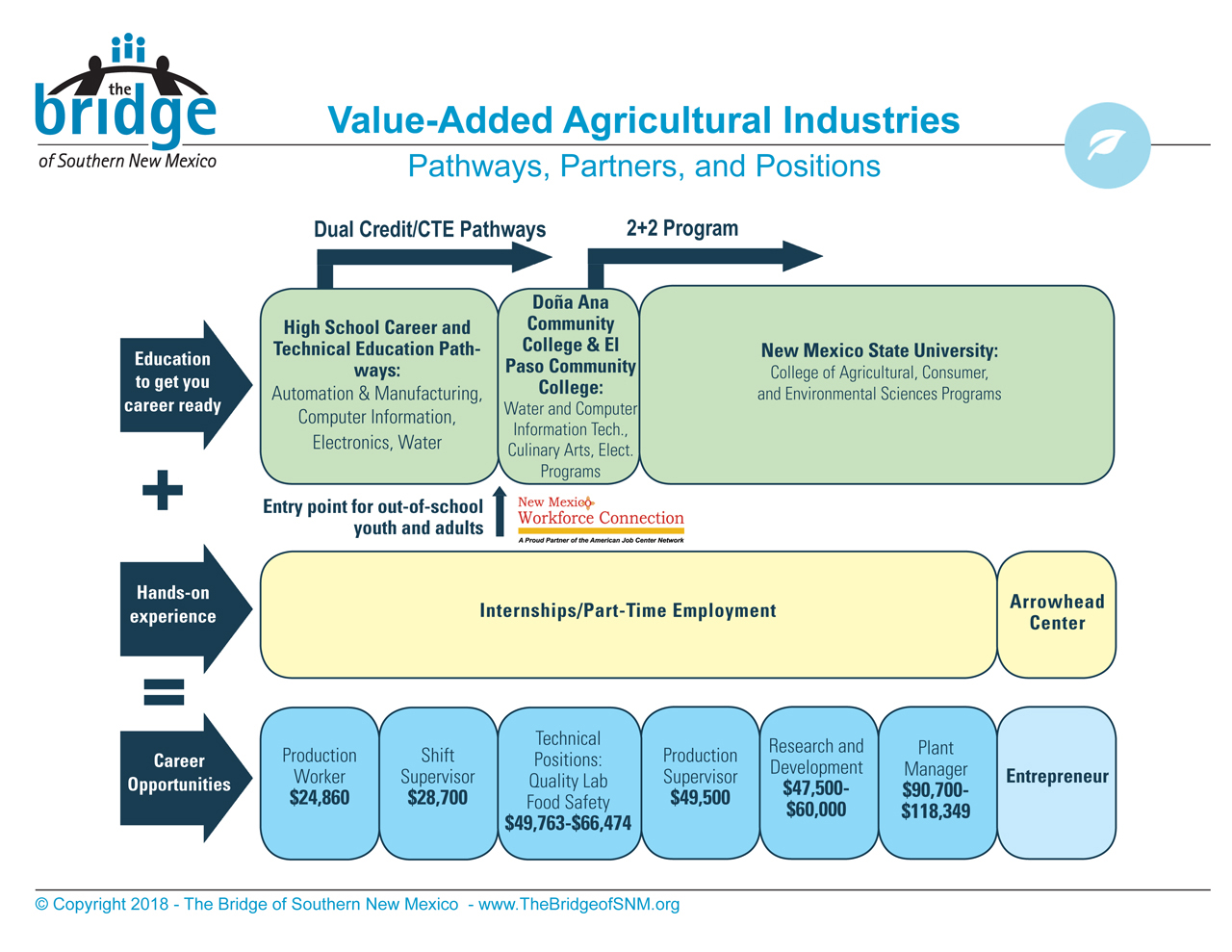Agriculture Career Information
Career Pathway
Career pathways show you how to connect your educational choices – Career and Technical Education, Career Certifications, Two-Year Degrees, Four-Year Degrees and beyond – to work-based learning as you prepare for a host of careers in these 21st Century Industries. The pathways work both horizontally and vertically, showing you how far you need to go in your education and hands-on learning to be ready for the careers you want.
What Did We Learn Directly from Employers in the Agriculture Industry?
If you want to become part of careers and employment opportunities in this critical and growing field, following is more about the needed skills, degrees, and previous work experience that they are looking for. For a full report, click here.
These employers indicated that they hire people to fulfill a host of different roles in their organization. The following percentages indicate how many of them reported having jobs in these respective fields.
Crop Maintenance/Harvest
Business Management and Administration
Transportation, Distribution, and Logistics
Marketing
Manufacturing
Average incomes for these jobs are both above and below the county’s median income:
And the skill needs of Agriculture are increasing with the integration of technology:
Most Requested Degrees
Bachelor Degrees:
- Agricultural Business/Economics
- Accounting (x2)
- Food Science
- Finance
Associate Degrees:
- Maintenance/Welding
- Accounting
Most Requested Trades and Certificates
- Forklift Driving
- Warehouse
- Truck Driving (CDL)
Top Jobs for Those with High School Diploma or GED
- Equipment Operator
- Receptionist
- Maintenance
Top Jobs for Those without Credentials
- Laborer
- Equipment Operator
- Receptionist
Now that you know what you need, you can start your roadmap with the education and training providers to help you reach your career destination. Check out your roadmap here.









